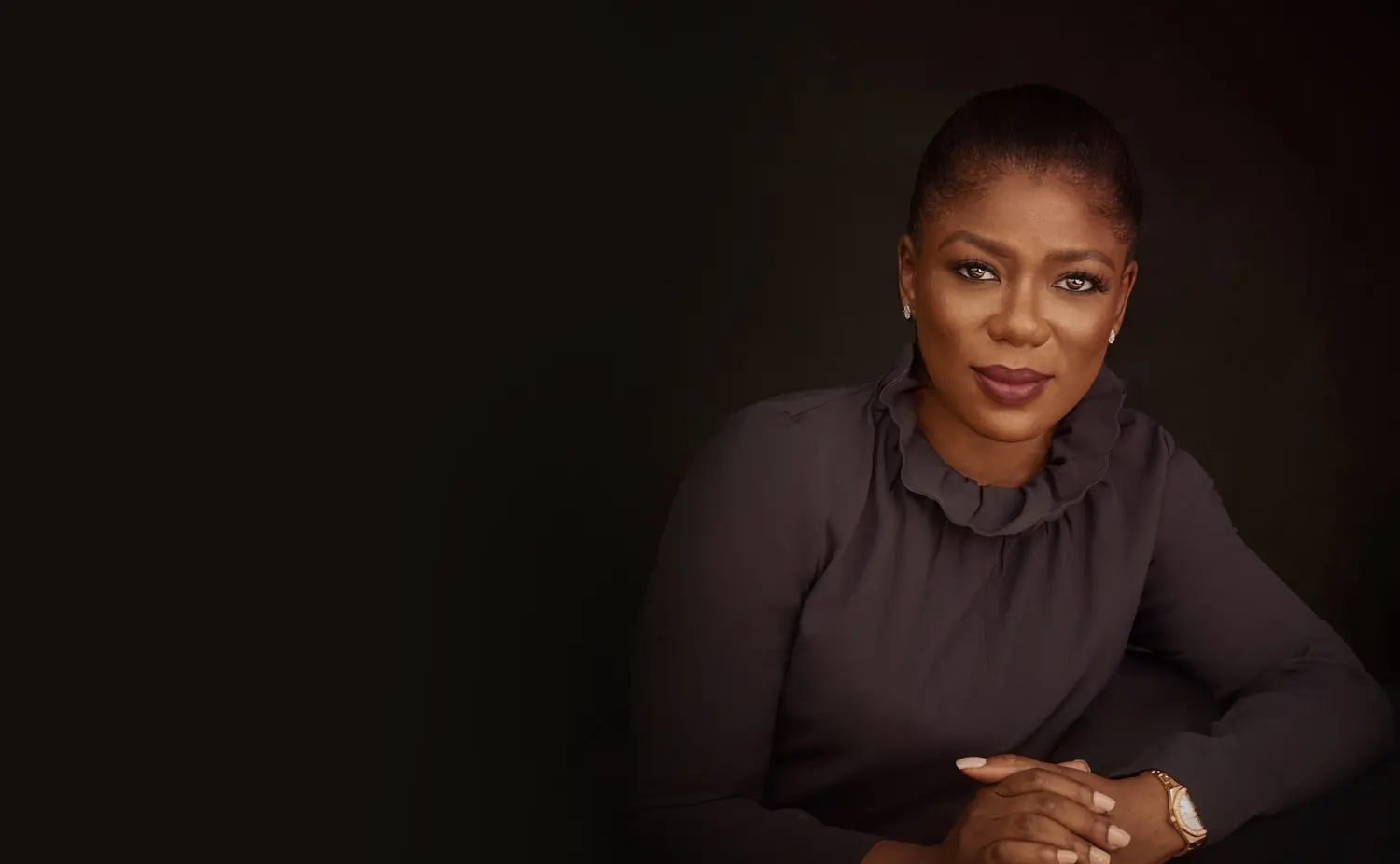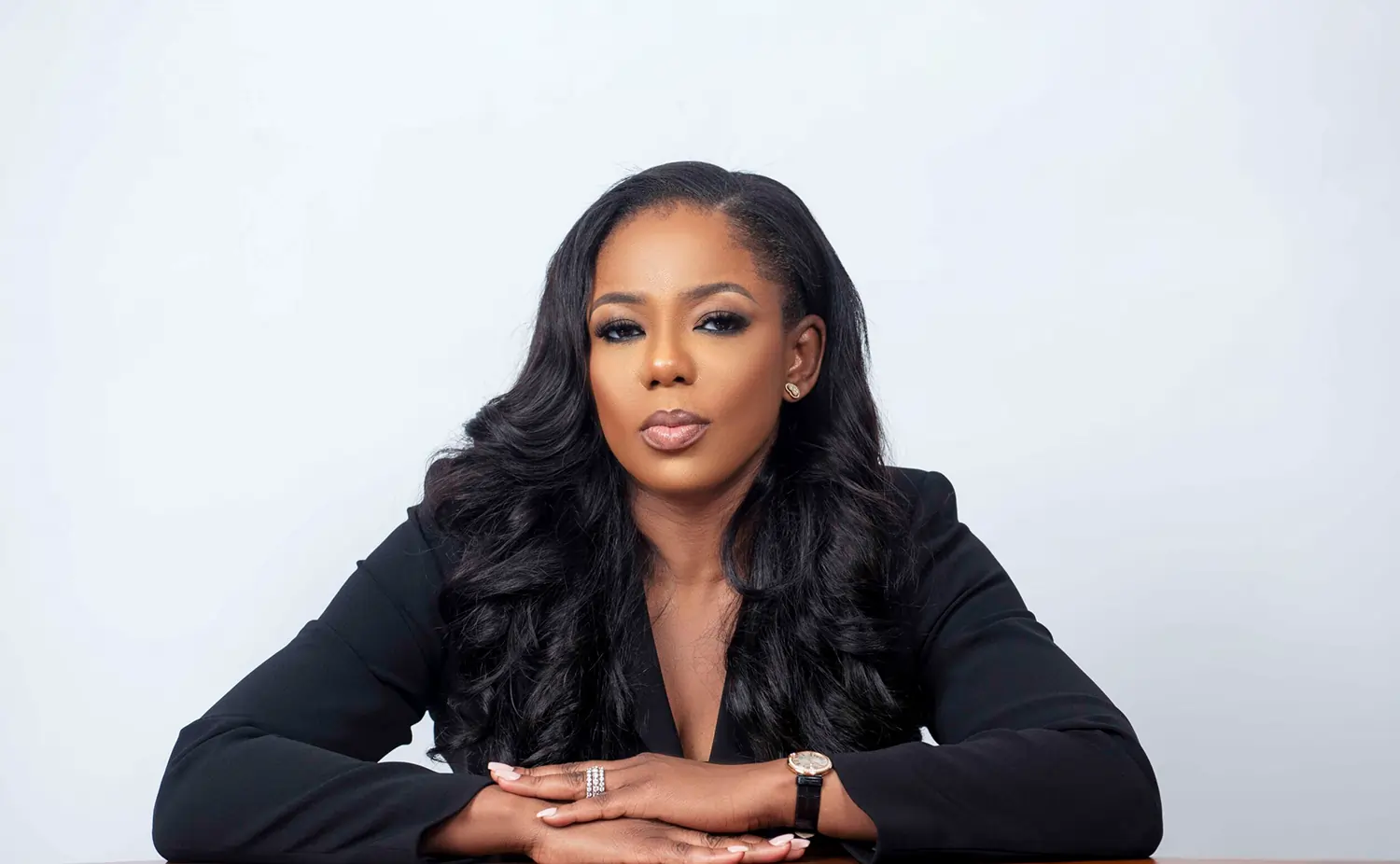Excellence means so much to her, so it is not surprising that she stands out among disruptors in the Nigeria financial advisory space. An innovative CEO whose passion and knack for integrity and setting standards sets her apart, Mrs Mojisola Hunponu-Wusu, CEO, of Woodhall Capital, a financial advisory firm founded in 2014 with the aim of raising international funds for financial institutions, large corporate and sovereigns, in this interview, reveals the secret of her success (integrity and good reputation) as CEO, challenges faced in the sector and possible solution to some of the problems confronting the country amongst others.
Excerpts:
What was your major reason for establishing Woodhall Capital, and to what extent have you been able to achieve that?
I established Woodhall Capital in 2014 because I believe that Africans themselves can Raise International Funds from the international community. We have typically mandated international banks to attract funds into our local African financial markets. This is not a path that is adopted by other countries. For instance, if the US government wants to raise funds, they don’t mandate a Kenyan bank; they will mandate American banks to raise the international funds. The same thing happens in the United Kingdom. I firmly believe that there is nobody that can tell the African story better than an African.
So, setting up Woodhall Capital about nine years ago was all about Africans telling their own story in the international market. There is nobody that can talk to investors and attract funding into the economy like Africans themselves. They will be honest with you about the risks inherent, but they will also ensure they highlight opportunities perhaps that you haven’t been able to see. It has been interesting. We work with a lot of international investors and financial institutions and it has been a real journey. So far, we have been able to raise over $4 billion USD and hope to take that up to over $10 billion USD in the next two years.

What is your definition of the words, ‘integrity and merit’, and how do they apply to you in your daily activities?
I think integrity talks about values, honesty and being true to society’s core values, not your own values because your values may not actually be seen as having integrity. Integrity is having strong moral principles based on honesty. Being true to society’s agreed shared values is having integrity. It’s about aligning with society’s core values or shared values.
How does that relate to your daily activities at Woodhall?
I am honored that I am seen as a person of integrity. As I said, integrity for me is a unification of ethics and values, society’s core values and my own core values. Being able to agree within myself what I will or will not do and sticking to that belief and ensuring that I am wholesome about that resolve; that I do not cause harm to anyone financially, physically, and otherwise.
What are your core values at Woodhall?
Our core values are integrity, humility, and honesty. So, we are transparent and open in communication with our clients. We try to stick to what we believe in, which is humility and at the core of what we do, realizing that we are not better than anyone else but it’s by the grace of God that we are here. We try to infuse that in everything we do. We try to live by what we believe and avoid anything that we know can compromise our integrity and prevent us from speaking the truth.
It is often argued that some of the challenges facing Nigeria have to do with leadership and corruption. What is your take on this?
We are the leaders; leaders don’t come from the moon. The leaders are the people, like you and I. You are a leader in your home and organization, and I am a leader in this firm. Leadership is not the problem. I think the problem lies in our shared values and moral courage. What do we agree on? What are our shared values? What I have noticed is that we don’t have shared values as a nation. What is wrong with one group of people may not be wrong with another group. Society should have shared common values. We should be able to say these are our agreed-upon shared values and stick to them. So, it is up to us to determine what our shared values are. What do we believe in? What do we want to do? Then, let’s implement these values across the board. That is what I mean when I say we are leaders; we all need to have tenacity and moral courage to implement on our values and align ourselves with them.
How do you think the issue of corruption can be effectively tackled in Nigeria?
Corruption stems from people like you and me. When I jump the queue, it may be a lesser degree of corruption. When I pay someone to help me jump the queue, I am enabling corruption. When I go to a government agency and pay someone to expedite a process that has a set system, I may be aiding corruption. I may be depriving someone of what they should rightfully receive, and in doing so, I and the people around me may be corrupt. Again, we need to examine our values and determine what is wrong. If we are in a queue to board a plane and a minister jumps the queue, we should say that it’s wrong. If I try to fast-track a document through someone or a government agency, and I feel the need to motivate someone to do their job, if I do it, I am also aiding corruption. We need to reach a consensus as a society on whether an action is right or wrong. If we identify it as wrong, then we need to address it. In some societies, people are not clear on what corruption is. The definition of corruption itself is not absolutely clear. If I visit you in your office today and give you $100, is that corruption or a blessing? In some organizations, it is explicitly stated that workers are not allowed to accept gifts. We need to define corruption because, in a multicultural country like Nigeria, our interpretations may vary across different groups.
Now, the solution; how do you think it should be addressed?
All we need to tackle corruption is sincerity. Let’s be sincere with ourselves. I ask myself that question all the time. Am I an enabler of corruption? We all know that what is wrong is wrong, and vice versa. We should start at individual levels by deciding whether what we want to do is right or wrong. Sometimes, when corruption benefits you, you no longer see it as corruption. So, we need to go back and define corruption sincerely and say, when this happens, it is corruption. As I mentioned, we have to be very sincere about our core values.
Besides being integrity-conscious, what are the other factors that have brought you this far in your career?
I remind myself of where I am coming from. I don’t get carried away by my opportunities; I constantly strive to stay humble. Correcting myself has helped me achieve this. I have learned from my mistakes and those of others. I make myself approachable so that people can give me a chance even in areas where I may not have much experience. I have found that doors open when I take a humble disposition and engage in interactive communication while presenting my needs.
“What I always tell young people is that when a bad person is searching for someone to look after his money, he will seek out a good person. Even a very bad person, when searching for someone to safeguard his funds, he will always look for a person of integrity.“
What are the important lessons that have helped shape your career as a CEO?
The most important lesson I have learned is that humility will take you further than most people acknowledge. I try never to look down on anyone and underestimating the qualities that lie within a person. The quality of adhering to a particular set of ethical and moral principles is a lesson that has helped to shape my career. It is human to make mistakes but humility directs us to ensure that we acknowledge those mistakes humbly and learn from them and move on.
Given the peculiarities of the Nigerian business environment, what are the challenges faced in your sector, and how have you been able to overcome those challenges as an organization?
The biggest challenge in our sector, which is financial services, is human capital As you can see, many people are seeking long-term solutions such as leaving the country or moving their assets abroad to start a new life. The brain drain of highly skilled professionals can be quite depleting. Additionally, the uncertainty of government direction and public sentiment can be confusing for international investors, leading to lower investments in the country.
Sometimes, international investors tell us that Nigerian graduates are not employable. As an employer of labor with international experience, what is your take?
I don’t think so. That’s really interesting because I didn’t know this. Nigerian graduates are very employable. Not only are they employable, but they are also very driven. Even in comparison to graduates from other countries, Nigerian graduates possess a remarkable level of determination due to the prevailing environment. They have grown up with the mindset of thinking outside the box entrepreneurially to survive. What we need to do is to harness and channel that drive in the right direction. They are absolutely employable when you find the right individuals, and significant investments have been made in their development. In terms of sheer motivation, I don’t think you will find any other country with young people as willing to stand up every day and fight. It’s truly remarkable.
How have you been managing those identified challenges?
Well, we are hopeful with the new government, and I believe they have started on the right foot by emphasizing sustainability and commercialization. Many policy signals seem to be business-driven, and we can perceive that through some of the decisions that have been made. We hope that these decisions will translate into stability, especially regarding economic policies. Many recent decisions have been made to ensure that the private sector thrives, indicating that the public sector is attentive and working towards creating an enabling environment for businesses. There is a lot happening at the moment, and we are optimistic that we will experience the positive impacts of these efforts in the next few months.
If you were to speak to the new government, what are the things you would bring to their attention?
I think the new government is doing a fantastic job, particularly with the announcement of the unification of the exchange rate. For me, that deserves a grand salute. The international market has heard that we are open for business, and they have witnessed the implementation of this decision in a very short time. It demonstrates that President Tinubu has a plan and is committed to fulfilling some of the promises made during his campaign. From that perspective, it is truly amazing. As for advice, I would suggest that quick decisions need to be made, and it is crucial to appoint the right people to the right positions. This will send a signal to the market that there is a new approach, especially by involving younger people who may feel disenfranchised and engaging them in nation-building. I am personally working on encouraging those living outside the country to come back and contribute because there is no place like home. I am conveying the message that a lot is happening in Nigeria. I am a product of former President Jonathan’s 2008 drive to repatriate young people who had worked in different countries, and so far, it has been quite amazing. It is essential to continue working hand-in-hand with the private sector and the international community, and this is achievable by implementing effective policies and appointing competent individuals. We are embarking on an interesting journey and I am eagerly looking forward to it.





